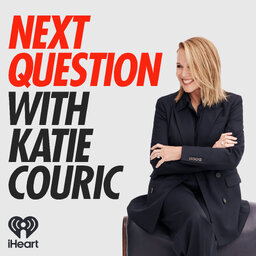Katie’s cub reporting days, the state of local news and the journalists reinvigorating the industry
Katie Couric got her start in local news, and found her footing as a broadcast journalist, reporting for WTVJ in Miami. But that was nearly 40 years ago. Unfortunately, today, local news, particularly print, is an industry in crisis. This week on Next Question with Katie Couric, Katie talks with longtime journalist Margaret Sullivan about her book, “Ghosting the News: Local Journalism and the Crisis of American Democracy,” and why the dire state of local news isn’t just bad for budding journalists, it’s bad for everyone. They also talk about their early days reporting for smaller markets and the people who are trying to save the industry today. The episode ends with first-person accounts of local news journalists, members of Report for America, a national service program that places emerging journalists into local newsrooms to report on under-covered issues and communities. They share what they’ve learned and why their work is so vital.
Report for America is currently fielding some 300 corps members in more than 200 newsrooms across the country. These include newspapers, radio, television, and digital outlets. Applications for new corps members will be open Dec. 1. Find out more about at their website, reportforamerica.org.
Pre-order Katie Couric’s memoir, “Going There,” to learn more about her early reporting days and the makings of her broadcast career. To find out where Katie is stopping on her book tour and to buy tickets go to ticketmaster.com/goingthere.
Learn more about your ad-choices at https://www.iheartpodcastnetwork.com
 Next Question with Katie Couric
Next Question with Katie Couric


